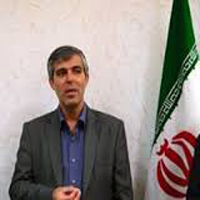Designing and analyzing the quantum efficiency model based on quantum immaterial skills through thematic analysis
The aim of this study was to identify the components of productivity based on intangible quantum skills and provide a model of quantum productivity. This research is fundamental and applied in terms of purpose, which has been done by analytical, exploratory and field methods. The statistical population of the present study was professors and experts in the field of sports management and managers and experts of the Ministry of Sports and Youth(367 people). Of these, 188 people were selected as the sample based on Cochranchr('39')s formula. Interviews and questionnaires were used as research tools. The research method was mixed. In the qualitative part, with the exploratory approach, the components were identified and in the quantitative part, the proposed model was examined. The narration of the researcher-made questionnaire was done in consultation with sports management professors and after applying all the corrective suggestions. The reliability of the questionnaire was also confirmed by Cronbachchr('39')s alpha coefficient. In the qualitative section, the content analysis technique was obtained using data interview, and in the quantitative section, the second generation of structural equations was presented using the least partial squares method to present and validate the model. All calculations were performed through EXCEL and WarpPLS software. The findings in the qualitative section reported 8 components and 38 sub-components for quantum productivity and 3 components for intangible quantum skills. The findings also showed that the quantum existence index has a significant effect on the components extracted from quantum productivity and the proposed model has a good fit (APC=0.279, RAR=0.476, AVIF=1.805). The results showed that quantum cognition skill has an effect on the components of quantum productivity and has the greatest and least impact on reducing organizational costs (β=0.422) and employeeschr('39') organizational communication (β=73/0). Quantum performance skills also have a significant effect on the components of quantum productivity and have the greatest and least impact on organizational participation (β=0.333) and organizational empowerment of employees (β=0.24). Finally, the effect of quantum trust on the components of quantum productivity is significant and has the greatest impact on the organizational empowerment of employees (β=0.606) and the least impact on organizational participation (β=0.322). The conclusion of this study is that the three intangible components of quantum (cognition, action, trust) significantly affect quantum productivity in the organization, so it is desirable that organizations use the pattern of quantum production and as an alternative. Previous management styles can be used to increase organizational productivity and dynamism.
- حق عضویت دریافتی صرف حمایت از نشریات عضو و نگهداری، تکمیل و توسعه مگیران میشود.
- پرداخت حق اشتراک و دانلود مقالات اجازه بازنشر آن در سایر رسانههای چاپی و دیجیتال را به کاربر نمیدهد.


